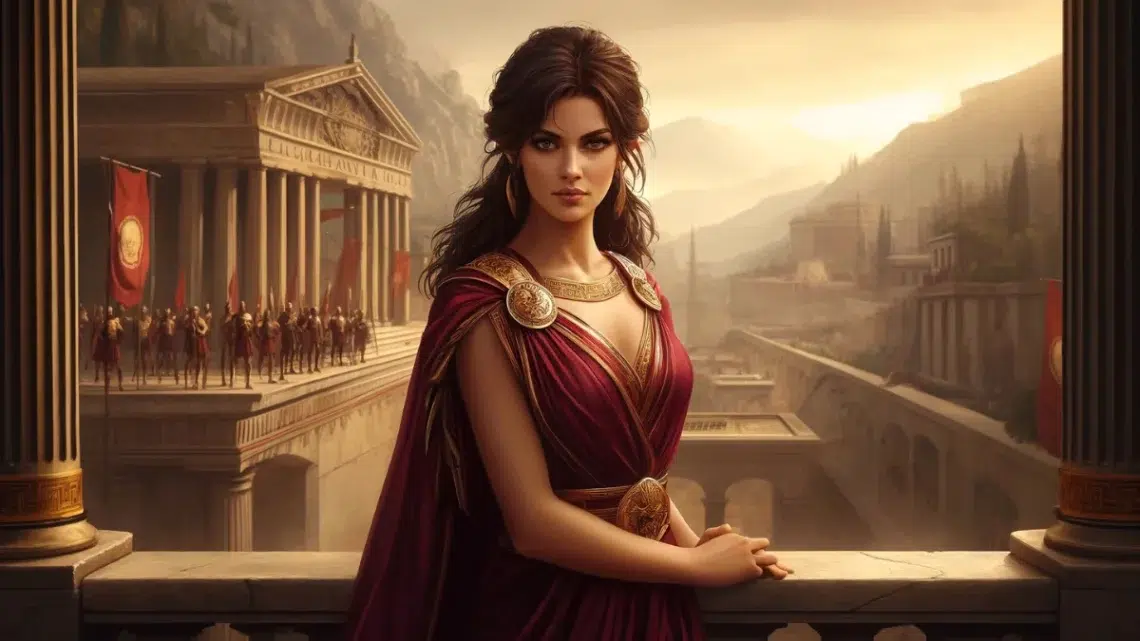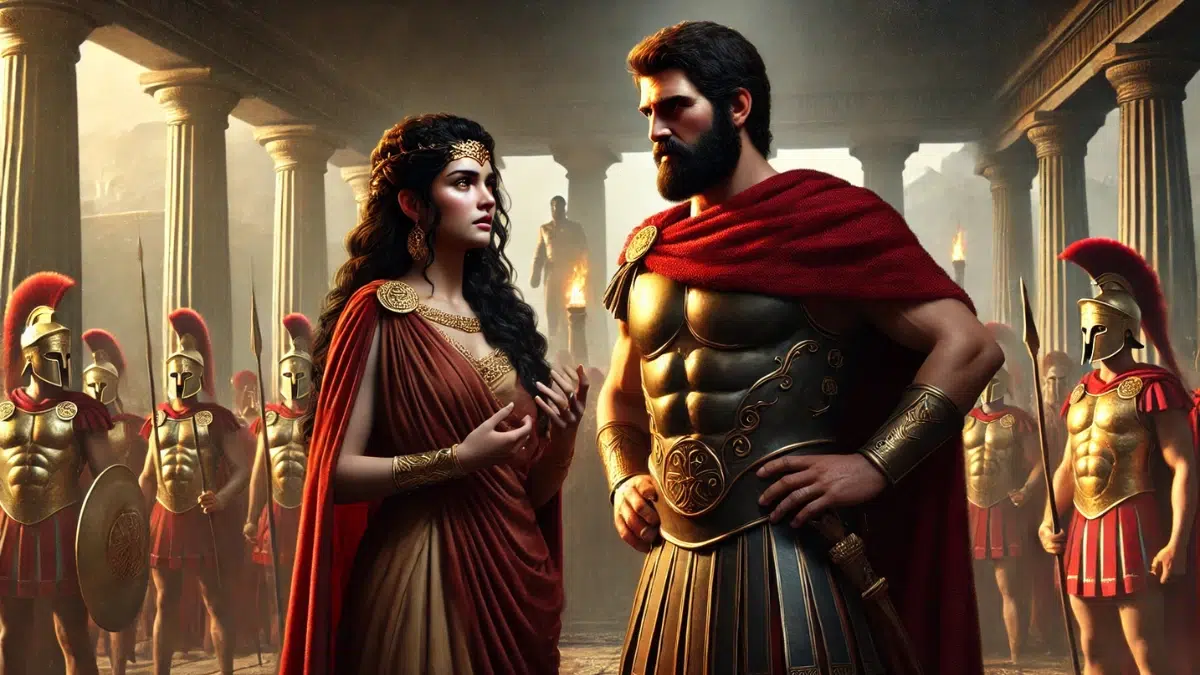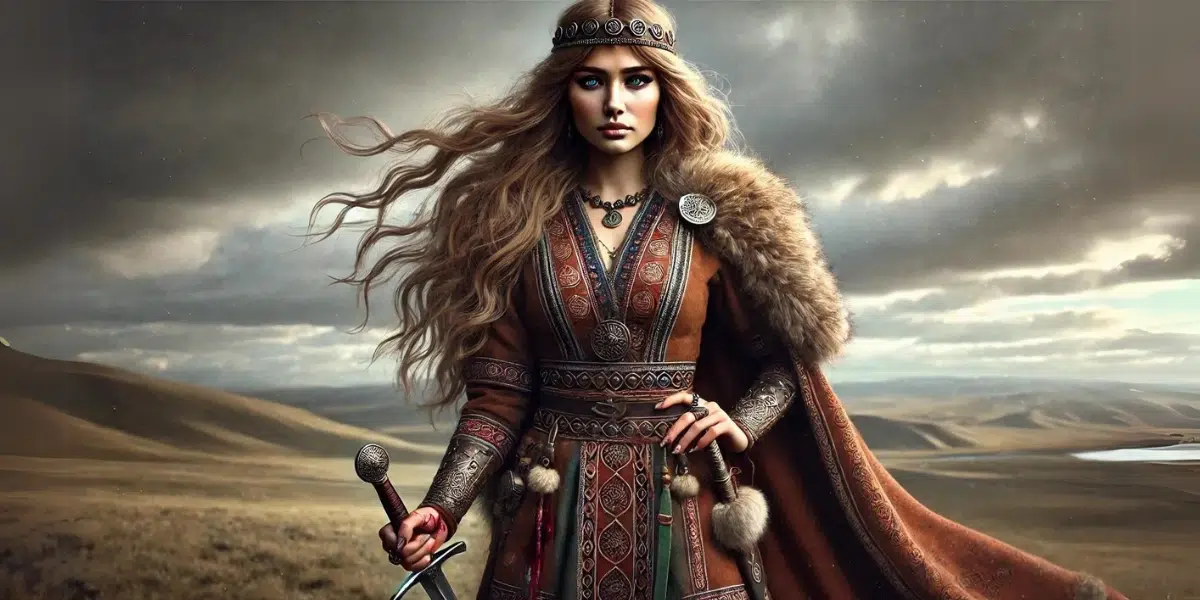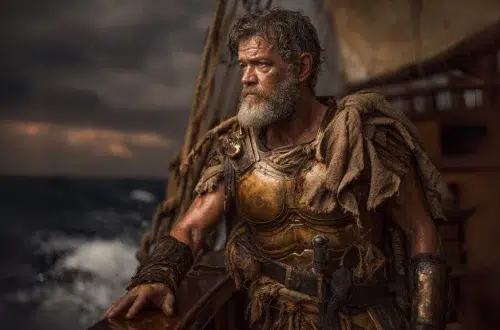
Queen Gorgo of Sparta – Brave, Intelligent, and Unbreakable
In Greece, Sparta, a land of warriors, forged legends not just in battle but in wisdom and strength. One of the strongest women was Queen Gorgo.
Sparta sits in Greece. This ancient city is famous for its warriors and strict way of life. While many think only men fought, Spartan women had power too.
Among its greatest figures Queen Gorgo was often overshadowed by Sparta’s famed warriors but no less remarkable. More than just a queen, Queen Gorgo was a strategist, an advisor, and a fierce protector of Spartan values.
The Mind Behind the Warriors
Born around 506 BCE, Gorgo was the daughter of King Cleomenes I and later the wife of King Leonidas I.
Many know Leonidas as the leader of the 300 Spartans who fought against Persia at Thermopylae.
But Gorgo also played a big role in Sparta’s history. She advised kings, made important decisions, and influenced the way Sparta prepared for war.
She showed that Spartan women were strong, smart, and independent.
Queen Gorgo’s influence extended far beyond the title of wife or daughter. She was a trusted political advisor and one of the few women in ancient Greece to be recorded as shaping military and political decisions.
The Hidden Message and the Battle of the 300
The Persians wanted to conquer Greece, but they tried to hide their plans. According to Herodotus, Queen Gorgo deciphered a secret message sent to warn Sparta of Xerxes’ plans. The warning was hidden beneath a wax tablet’s surface—only she realized the need to scrape away the wax to reveal the message carved into the wood.
A Greek man named Demaratus sent a wooden tablet covered in wax. No one understood why he sent it—it looked blank.
But Gorgo had an idea. She told them to scrape off the wax. Underneath, they found words carved into the wood.
It was a warning! The message told Sparta that the Persian army was coming. Thanks to Gorgo’s clever thinking, Sparta had time to prepare for war.
Xerxes: King of the Persian Empire
Xerxes is the king of Persia, one of the biggest empires in history. He rules over many lands, including parts of Asia, the Middle East, and North Africa. He wants to conquer Greece and make it part of his empire.
His army is huge, with thousands of soldiers, war elephants, and powerful ships. He builds a bridge across the sea to move his troops faster. He believes no one can stop him.
The Persians want to conquer Greece.
Queen Gorgo and the Hidden Message
One of her most famous moments came before the Persian invasion.
A Greek man named Demaratus wants to warn Sparta about the Persian army. The Persians plan to invade Greece. Demaratus knows that if the Persians find his message, they will destroy it. He needs a way to hide the warning.
He takes a wooden tablet and carves words into the wood. Then, he covers it with wax, making it look blank.
When the tablet reaches Sparta, people stare at it in confusion. There are no words, no pictures, nothing at all.
Queen Gorgo sees the tablet and thinks carefully. She knows messages can hide in strange ways. She tells the men, “Scrape off the wax.”
They do as she says. Underneath, they find the carved letters. The message warns Sparta about the Persian army marching toward Greece.
Because of Gorgo’s smart thinking, Sparta now has time to prepare.
The warning helps them get ready for the famous battle at Thermopylae, where her husband, King Leonidas, leads 300 warriors.
Gorgo does not fight with a sword, but she saves Sparta with her intelligence. Her quick mind and bravery make her one of the most powerful Spartan women in history.
The Battle of 300 Spartan Warriors
The Battle of Thermopylae happens in 480 BCE when King Xerxes of Persia invades Greece.
He brings a massive army to crush the Greek city-states.
King Leonidas of Sparta leads 300 Spartan warriors, along with other Greek allies, to block the Persians at Thermopylae, a narrow mountain pass.
The Spartans fight bravely for days, holding off thousands of Persian soldiers.
A Greek traitor, Ephialtes, shows Xerxes a secret path, allowing the Persians to surround the Spartans. Leonidas and his warriors refuse to surrender. They fight to the last man, inspiring Greece to keep resisting Persia’s invasion.
After Leonidas died in battle at Thermopylae, Gorgo and Leonidas’s son Pleistarchus became the king of Sparta.
Even though they lose, the Spartans inspire Greece to keep fighting. Later, the Greek city-states join together and defeat Xerxes’ forces.
Xerxes returns to Persia after losing important battles. His dream of ruling Greece never comes true. Even with his mighty army, he cannot break the Greek spirit.
Today, people remember him as the great king who tried to conquer Greece but failed because of strong warriors and smart leaders like Gorgo and Leonidas.
More Than a Queen
Women in Sparta had more freedom than women in Athens. Spartan girls trained in running, wrestling, and fighting. They learned how to manage land and make decisions.
In Athens, girls stayed at home and learned how to cook and sew.
Gorgo played a vital role in reinforcing Spartan ideals. Spartan women were raised with education, physical training, and the expectation to uphold the city’s values. Gorgo embodied this, advocating for strength, discipline, and loyalty to Sparta.
Spartan women could own land, speak their minds, and even tell men what to do. They believed strong women raised strong warriors.
She reportedly told other Spartan women: “Only Spartan women give birth to real men.” This statement reflected her belief in Sparta’s unique warrior culture, where women were expected to be just as strong-willed as men.
Queen Gorgo was a Thinker
Gorgo was a thinker and a strategist. She understood politics and war.
Gorgo learned to read and write, which was rare for women in ancient Greece. Her ability to decode the hidden message proved how valuable literacy and intelligence were in Sparta.
Her keen intelligence became evident at a young age.
Once, a foreign man tried to bribe her father with money. Gorgo warned him, “Father, you should leave, or this man will corrupt you.” She saw tricks and lies before others did. Spartan leaders trusted her words because she was smart and bold.
This sharp insight into politics and human nature followed her into adulthood.
Other Warrior Women Like Gorgo
Many warrior women in history share Gorgo’s strength.
One is Tomyris, a queen from Central Asia. She led her people in battle against the Persian king Cyrus.
Tomyris ruled the Massagetae, a nomadic people in Central Asia. She is famous for defeating Persian King Cyrus the Great in battle. When Cyrus tricked her son into capture, she swore revenge. Her warriors destroyed the Persian army, and she ordered Cyrus’ head placed in a jar of blood.
Celtic Queen Boudica
Another is Boudica, a Celtic queen in Britain.
Boudica led the Iceni tribe against the Roman Empire in Britain. After Romans mistreated her people, she gathered an army and burned Roman cities. Her warriors destroyed Londinium (London), but Rome’s forces defeated her in battle. She refused capture, choosing death over surrender. Her bravery remains legendary.
Like Gorgo, these women were leaders, warriors, and symbols of strength.
Queen Gorgo’s Legacy of Power and Wisdom
Gorgo’s story shows that power is not just about fighting with swords. She used her mind to protect her people. She helped Sparta by being wise, strong, and fearless.
While she never took up arms on the battlefield, Gorgo was every bit a warrior queen. Her intelligence, influence, and dedication to Sparta’s cause made her one of the most formidable women of her time.
Today, she stands as a testament to the power of Spartan women—not just as mothers of warriors, but as warriors in their own right, armed with wisdom, strength, and an unyielding spirit.










